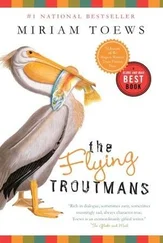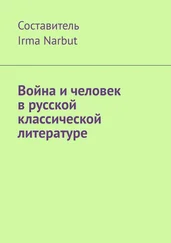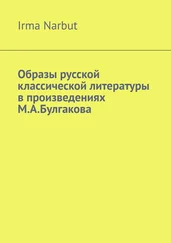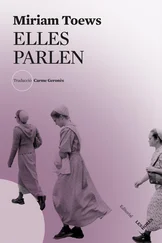I don’t want him to yell at me, said Marijke, if that’s what it takes to prepare me. I can’t handle that.
He won’t, I said, your role is different.
We all piled into the trucks and drove off to shoot the first scene. Elias was driving the truck that Marijke and I were in. In Rubio, the closest village to our campo, he smashed it into a fence trying to back up and Diego, following behind, radioed him to let me drive because I knew the roads around there. We had to wait for a while so that Diego could negotiate something with the owner of the fence. Alfredo came over to where Marijke and I were standing and asked me if my father and my husband knew I was working for Diego.
When Diego came back he suggested that Alfredo change trucks and sit next to Marijke so they could get to know each other because they did speak the same language, but Marijke said that in fact their dialects were entirely different, she was a Russian Mennonite living in Germany and he was a Canadian Mennonite living in Mexico, and Alfredo was drunk and reeked of booze and was completely unintelligible and so … no.
She just wants some time to herself to organize her thoughts, I told Diego.
What thoughts? he said. Is she unhappy again?
I drove for a long time past various campos, clusters of barns and houses here and there, and down dirt roads and through cornfields and little streams and mud and desert. Elias and Sebastian, the sound guy, were sleeping in the back seat and Wilson sat in between them writing in his notebook.
What’s he writing? Marijke asked me.
What are you writing? I asked Wilson, in Spanish, and he said stories, small stories. He said he’d like to read them at a festival in Guadalajara but he can’t now because he’s been commandeered to work for Diego and he needs the job.
Marijke, I said, does your husband mind that you’re here in Mexico working on a movie?
No, she said, not at all. I don’t think he does. Do I mind if he goes to work? Do I mind if he shits and breathes?
I thought, that’s what I should have told Alfredo when he asked me about Jorge.
Elias woke up and lit a cigarette. I forgot my light meter, he said. I’m a dead man. Wilson looked up briefly from his writing.
We drove through clouds of dust in silence. We passed a few Tarahumara Indians on the road, a mother and her daughters clad in beautiful colours. They didn’t seem to be walking anywhere. They were just there, standing brightly. I turned around to look a few times to see if they would move. I did it quickly, trying to catch them moving, but they had my number.
Marijke and I sat in an empty shed on upside-down feed buckets talking about the script and sex and the nervous system. She asked me if Jorge had wanted to have a baby with me.
I’m not sure, I said.
You didn’t talk about it?
I don’t think so, I said.
Would he make a good father, do you think? she said.
Well, I said, I’m not sure. What do you mean?
I mean would he be helpful with the baby and love it more than himself.
I was quiet, thinking of fathers, of my own and of Jorge’s, who had watched his small shoes bubble over and then disappeared.
Well, what do you think? said Marijke. Are you crying?
Diego had asked me to do Marijke’s hair like mine. I started combing it and a few chunks of it, long strands, fell onto the dirt floor. Those are my extensions, she told me. She told me they had been welded to her head with a heat gun and glue. She told me that mostly her hair would have to be braided and stuffed under her doak when she was acting but she thought there was one scene where it was required to tumble out of her kerchief and that’s when she’d need the extensions.
I had that dreamy feeling of falling, for a split second, and then losing my footing again. To regain it, I tried quickly to remember the meaning of the word samizdat . And then I heard screams. A kid came running into the shed and grabbed my hand and dragged me outside into the yard where a bunch of other little kids were standing around a four-foot tiger snake. I grabbed a rake from the shed and neatly (not to brag, but you know) sliced the thing in two and the kids stared for a while, a couple of the boys kicked at it, and then went back to their game. Marijke came outside and asked me what was going on. Well, this thing is dead now, I said.
We stood with our hands on our hips and looked at it. Marijke’s hair was half done and billowing out from one side of her head like the flag of some beautiful and indefinable region. She moved her fingers gently over the tight braids on the other side. Good job, she said.
Check this out, I said. I picked up a piece of the snake and peeled off its skin. I crushed the hard shell in my hand and showed Marijke the powder. You can sprinkle this over your food like salt, I said.
She licked her finger and dabbed at the crushed bits in my hand.
Hmmm, she said. Are you sure?
Diego called to say he needed Marijke then, to just shove the rest of her hair under the kerchief and come right now because the light was right and the Mennonites who owned the house were getting restless. The crew had set everything up and the Mennonite kids playing the Mennonite kids were in their places and their parents, Alfredo and Marijke, were supposed to talk about stuff while checking out the new tractor with the family. One of the kids didn’t want to be there and Miguel was trying to cajole him in Spanish, which the kid didn’t understand yet, and then to bribe him with chocolate. Eventually Miguel just said okay, go play, and he went out and plucked a different, more pliable blond-haired, blue-eyed kid from the crowd that had gathered around and set him down next to the tractor for the scene.
Diego asked Alfredo to remove his beer can from the hood of the tractor so it wouldn’t be seen in the shot and then he took me aside and said that this was the scene of the family together, pivotal and establishing, and must be perfect. Alfredo will tell Marijke that he has to go to town on some kind of business and Marijke will indicate through her body language that she does not believe him but that she will accept what he is saying for the sake of peace in the home. Alfredo will take a few steps then come back and put his hand on her shoulder and tell her that he loves her. Marijke will tell him that she loves him too. Okay? he said. It’s simple, right?
I nodded. Yeah, I said. Should I tell her now?
Yes, Irma, please, said Diego. We’re ready. And can you also tell her to please not look into the camera.
I went over to Marijke and told her what Diego had said about not looking into the camera.
And when Alfredo tells you that he loves you, I said, you smile a little sadly and put your hand softly on his hand and tell him quietly that you’re tired of his bullshit. In fact, no, not tired, but very close to being defeated by his bullshit.
That’s what I tell him? she said.
Um, yes, I said. Quietly and sadly.
Okay, she said.
And remember the camera, I said. Not to look at it.
On the way home Elias and Sebastian smoked Faros and shared headphones.
Irma, said Elias. Do you know Neil Young?
Yeah, I said.
You do? said Elias.
No, I said.
He’s from Canada! said Elias. He handed me his headphones and I put them in my ears and listened. I heard Neil Young singing about a sky about to rain.
What does that last part mean? said Elias.
I don’t know, I said. Then I thought about it. I don’t know, I said again.
It comes out of fucking nowhere but it fits perfectly, said Elias. I don’t know what it means either but it’s fucking brilliant. He took the headphones back and listened to another song. When it was finished he took them off and told us that the song was about this guy, he loses his way, his map, he loses his telescope, he loses his coastline! It’s so great, he loses everything, he loses his words! So he keeps singing but just this la la la la la la la la and it gets more and more joyful and builds into this incredible crescendo, it’s so happy, because he’s finally free and he’s lost but he’s free!
Читать дальше












